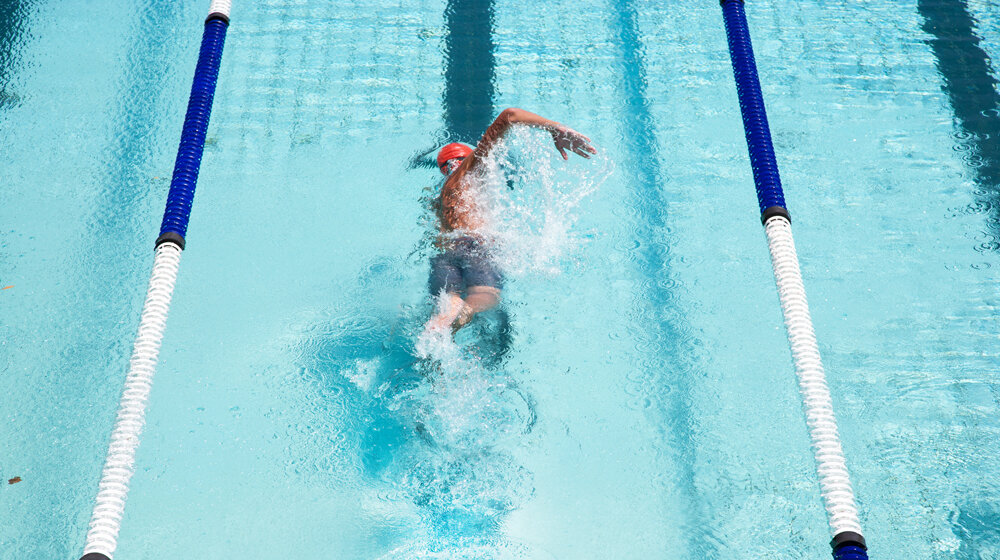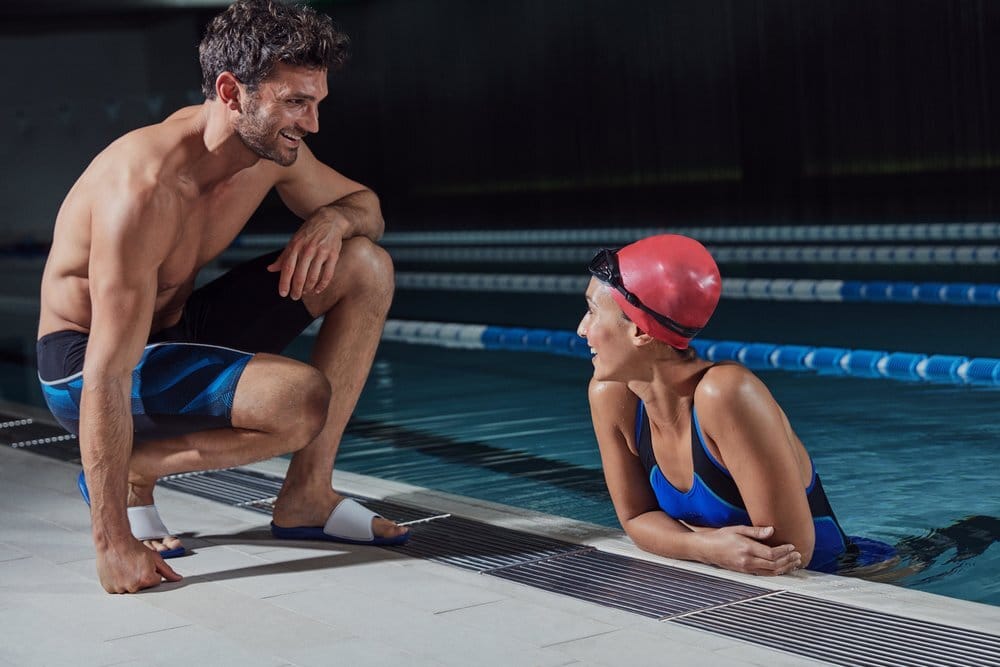Related Topics
TRIATHLON WORKOUTS OUTDOORS SWIMWEAR
Lose weight, get fit and improve your mood. The benefits of swimming are huge, offering a low impact, full-body workout that tones muscles and helps you relax.
From weight loss to better sleep: seven reasons why swimming is great all-round exercise

The benefits of swimming are almost endless. It’s a great way to tone up, a proven method of relaxing your mind and can even help turn back the ageing clock. Here’s why everyone should make time to swim.
- Almost everyone can swim
- 30 minutes of swimming can burn up to 350 calories
- Swimming helps build lean muscle
- Many swimmers say it eases aches and pains
- Swimming can help you get to sleep
- Regular exercise helps improve your mood
- Swimming has a low risk of injury
Can anyone swim?

Swimming is great for everyone from pregnant women and the elderly to injured athletes and those looking to get back in shape or get fit quickly.
If you’re at all unsure, or you’re coming back after a long break, consult your doctor before you start to help avoid overdoing it.
Why is swimming such good exercise?
Swimming is one of the best forms of cardiovascular, or aerobic exercise because it uses almost every muscle in your body and raises your heart rate*.
According to one study, 12 weeks of swimming can improve the efficiency of the blood being pumped through your body by 18% and because water is around 800 times denser than air, it’s great for toning up without putting stress on your joints.
It can even slow down the ageing process – scientists have shown that swimming three to five times a week dramatically reduces the risk of early death.

What muscles do you use when you swim?
Every time you swim is like doing a mini-resistance workout. Each kick, pull and push works your muscles more than you might imagine, especially your arms, shoulders and glutes – the muscles that lie dormant all day when you’re at your desk.
Swimming also works your abs – or core – and will reduce your waistline and hips. So, along with building fitness, it’s a fabulous full-body exercise.
Can swimming improve your mood?
According to researchers, regular swimming can reduce stress, lower anxiety and combat depression, whatever your fitness level or ability.
Being surrounded by water helps diffuse your senses and lets your body relax far more than being in a gym full of mirrors and loud music.
And if you prefer to do it outdoors, recent studies have shown that open-water or wild swimming is a brilliant (if chilly) way to lift your mood, improve cognition and find a natural high.
By being outside you’ll also get a vital shot of Vitamin D, even in those dark winter months.
For more advice on how to swim outdoors safely: www.speedo.com
Does swimming help you lose weight?
Yes. Swimming torches calories and is great for weight loss and reducing body fat.
By swimming steadily for just 30 minutes, you can expect to burn up to 350 calories and an all-out hour in the pool can crunch more than double that.
What’s more, because swimming builds lean muscle, which in turn fires up your metabolism, you’ll keep burning calories as you shower, dry off and head for home.
Can swimming prevent injury?
Swimming has a lower risk of injury than many other forms of exercise because the buoyancy of the water takes stress off your joints.
It’s a natural painkiller too – in one study of people with chronic lower back pain, 90% said that their pain had improved after six months of regular swimming.
What’s more, swimming has been shown to help reduce inflammation and help people suffering from osteoarthritis.*
How can swimming improve your sleep?
According to a study by the National Sleep Foundation** people who take regular exercise, such as swimming, are twice as likely to have a good night’s sleep. They are also less likely to suffer from insomnia or report early waking.
For more articles like this as well as training plans, swim tips, and training videos, sign up for free to Speedo On.
*Source: Amateur Swimming Association (ASA)
** Source: Research conducted 4-10th June 2013 by Vision Critical who questioned 4,120 randomly selected adults from the UK, USA, France and China.
*https://www.ncbi.nlm.nih.gov/pubmed/26773104
Disclaimer – Always consult a qualified medical professional before beginning any nutritional program or exercise program. The exercise suggestions are not intended to substitute for proper medical advice.





